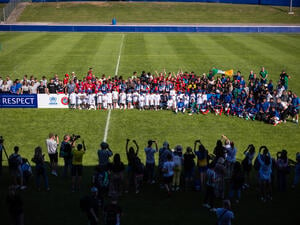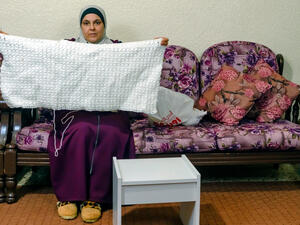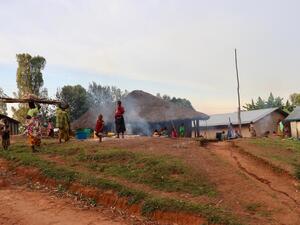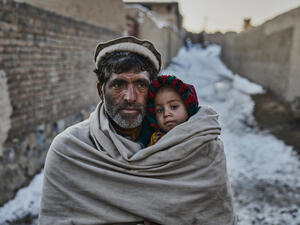UNHCR opens annual consultations with NGO partners
UNHCR opens annual consultations with NGO partners
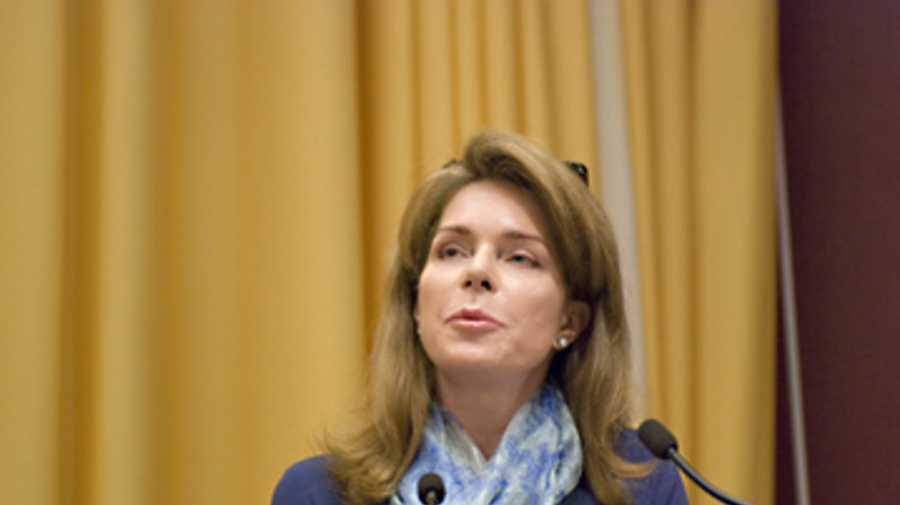
Queen Noor of Jordan addresses the opening of the UNHCR Annual Consultations with NGOs in Geneva.
GENEVA, June 25 (UNHCR) - The UN refugee agency's annual consultations with NGO partners opened on Wednesday with a call by Jordan's Queen Noor for renewed international support for the Iraqi refugee relief programmes of UNHCR and others. She also urged resettlement countries to take in more Iraqi refugees.
Queen Noor and her Noor Al Hussein Foundation were among some 350 participants and more than 200 organizations from around the world taking part in this year's three-day UNHCR Annual Consultations with NGOs (non-governmental organizations). There were more national NGOs attending than ever before, showing how vital these are to the work of UNHCR in the field.
Referring to the "terrible pandemic" of forced human displacement, Queen Noor put a spotlight on the Iraqi refugee crisis and the threat it posed to the region. "The Middle East is particularly vulnerable as ongoing tensions are further strained by such large-scale displacement," she said, adding that one in five Iraqis had been displaced by the conflict in their country.
The queen said Syria and Jordan were struggling to cope with the influx of hundreds of thousands of refugees, adding that the population of her country had risen 10 percent. At the same time, only a tiny proportion of Iraqis were being taken in by industrialized countries.
"We must support the Iraqi government in providing a secure environment that will allow their citizens to voluntarily return home as soon as possible," she stressed, while urging resettlement countries to "dramatically increase resettlement."
Queen Noor, who noted that UNHCR had been having difficulties raising funding for its Iraqi programme, said the scale and duration of Iraq's emergency "requires a renewed commitment of international support to the UNHCR, its NGO partners and other organizations in their critical relief work."
Meanwhile, Deputy High Commissioner for Refugees L. Craig Johnstone stressed the importance of UNHCR's partnership with NGOs. "We need to have partners or else we will fail as an organization," he told delegates at the opening session.
Johnstone then spoke about the reform process under way at UNHCR and aimed at cutting costs, directing more resources into the field and improving the organization's efficiency.
He said these reforms - "We're about halfway through the process" - would also further improve ties with NGO partners. They included more decision-making in the field, better evaluation of total needs and ratcheting up budget requests to more realistic levels.
Delegates will be discussing a wide range of issues during the gathering. Issues to be tackled include human rights; urban refugees; the shrinking of humanitarian space; refugee law; post-primary education for teenagers and youth; internally displaced people; protection of women and children at risk; and monitoring of refugees, asylum seekers and other migrants in detention. There will also be regional sessions.
For the past two decades, the annual consultations have brought together NGOs and UNHCR managers to examine all aspects of their partnership on behalf of the world's uprooted people.
NGOs are vital partners for UNHCR, implementing programmes for refugees and internally displaced people in some of the world's most remote and difficult places. The UN refugee agency works with more than 600 NGOs worldwide.




